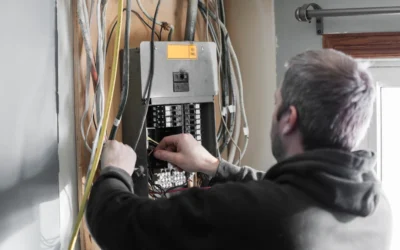Home loans seem like alphabet soup? This will help!

Understanding your mortgages are CONFUSING! Here are a few things that will hopefully help you make sense of it all.
FHA. The FHA (or Federal Housing Administration) offers a whole host of financing options, pretty much all of which include the option of a low down payment (as low as 3.5%), lower closing costs (costs associated with the dispensation of your loan and the transfer of property, which we’ll talk about later), and easier qualification standards. All of these benefits become available to the buyer because an FHA loan is essentially guaranteed by the federal government, making your borrowing costs and fees much lower.
USDA. You probably recognize “USDA” from the packages of beef at your local supermarket, and you’re wondering what in the world they have to do with home financing. The truth is that the USDA (or United States Department of Agriculture) has a very active Rural Development agency, which funds mortgages for homes in areas with relatively low populations. As populations in St. Louis and St. Charles counties expand, many new housing developments are going up in traditionally rural areas like Troy MO in order to meet the growing housing demand. As a result, these rural development loans are becoming increasingly popular. The USDA offers favorable rates and 100% financing, as well as easier qualification, which means buyers can get their loans faster, and move into their homes with no money down. This is another program that is very popular with first-time homebuyers in our area, and CMS Homes has extensive experience helping buyers secure funding through this program.
VA. If you are serving (or have served) in the military, first of all we THANK YOU and want you to know you may be eligible for a VA-backed loan. VA-backed loans are another federally-guaranteed loan, meaning that the government will repay your lender in the unlikely case that you default on (fail to pay back) your loan. With this assurance from the government, VA-backed loans generally avoid the need for a down payment, meaning you can move into your home with no money down. VA-backed loans also often garner favorable interest rates. You can find out about your eligibility for a VA-backed loan, as well as get more information on the program’s benefits, on the Department of Veterans Affairs’ website.
Summary. Whatever program you end up using for your mortgage, it is important that you work with mortgage specialists who know the ropes and can keep an eye out for any additional help you may be eligible for (Read about the biggest mistake you can make). Here at CMS Homes, our team has years of experience helping other first-time homebuyers just like you, so be sure to call or stop by if you have any questions about the process.
Fixed vs. Variable
Another important feature of your home loan is the type of interest rate associated with your mortgage. The interest rate is important, because the higher the interest rate, the less of your monthly payment that will be going toward your principle, and ultimately toward the final pay-off of your home. (Remember, the principle is the amount of money that you actually borrowed, while the rate determines the interest that you will pay.) There are two common rate options:fixed or variable rate.
Fixed-rate mortgages are pretty much just what they seem to be: mortgages on which the rate (or the interest rate) is fixed for the entire term of the loan. Many people opt for a fixed-rate loan because the payments are not prone to fluctuations in the interest rate, meaning that they always know exactly how much their mortgage payments will be.
Variable (or “adjusted rate”) mortgages are, in contrast, pegged to general interest rate indexes, and can go up or down over time. These loans are also called “ARMs,” as in “adjustable rate mortgages.” Typically, with these loans there is an initial period where the interest rate stays “fixed”, and then the loan becomes eligible for re-adjustment in regular intervals after that. For example, a popular type of ARM is the 5-year ARM or the 5/1 ARM. This ARM stays at a fixed percentage for the first five years of repayment, then the interest rate is adjusted once every year for the remaining life of the loan.
Conclusion. So which one is better? Well, like many other things when you are buying a house, this depends upon your unique situation. Fixed-rate mortgages can offer a sense of security, but they can be harder to qualify for, and, if interest rates drop significantly (as they have in recent years), you could be stuck paying a much higher interest rate than those who have variable rate mortgages. On the flip side, if rates were to skyrocket, and you had a variable rate mortgage, you could see a significant jump in your monthly payments; that said, it can be cheaper to move into a new home under the terms of an ARM, because the initial monthly payments tend to be lower than those of fixed-rate mortgages.
Wrapping it up.
With so many details to consider, it is essential that you work with a mortgage professional who can help you identify which options are right for you. CMS Homes has a finance specialist available to help you navigate the myriad options, and find a financing plan that fits your needs and budget.



0 Comments